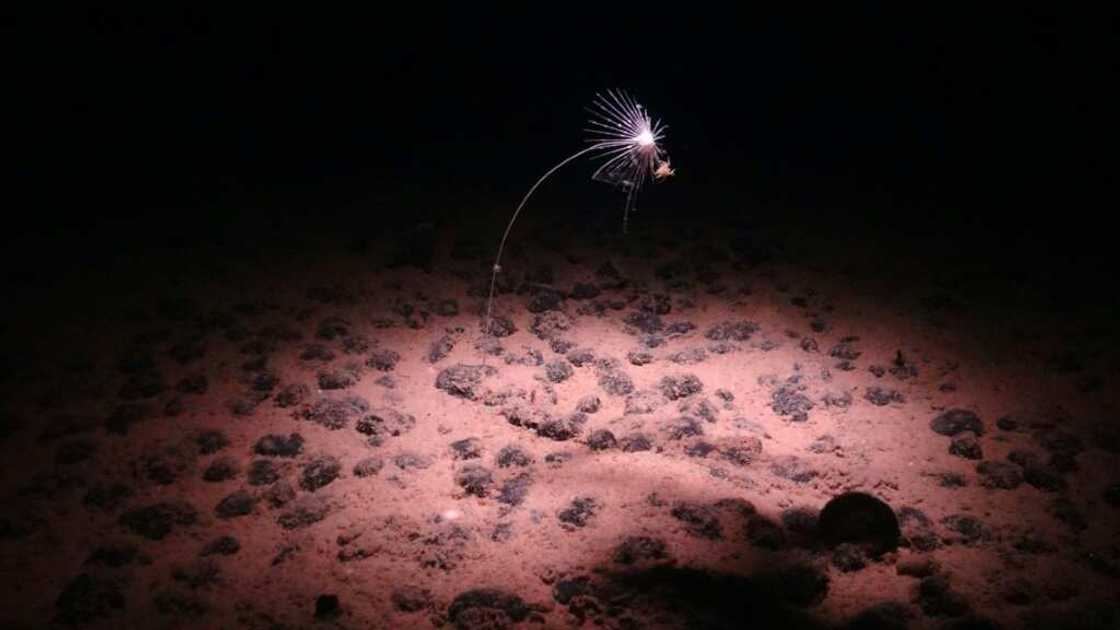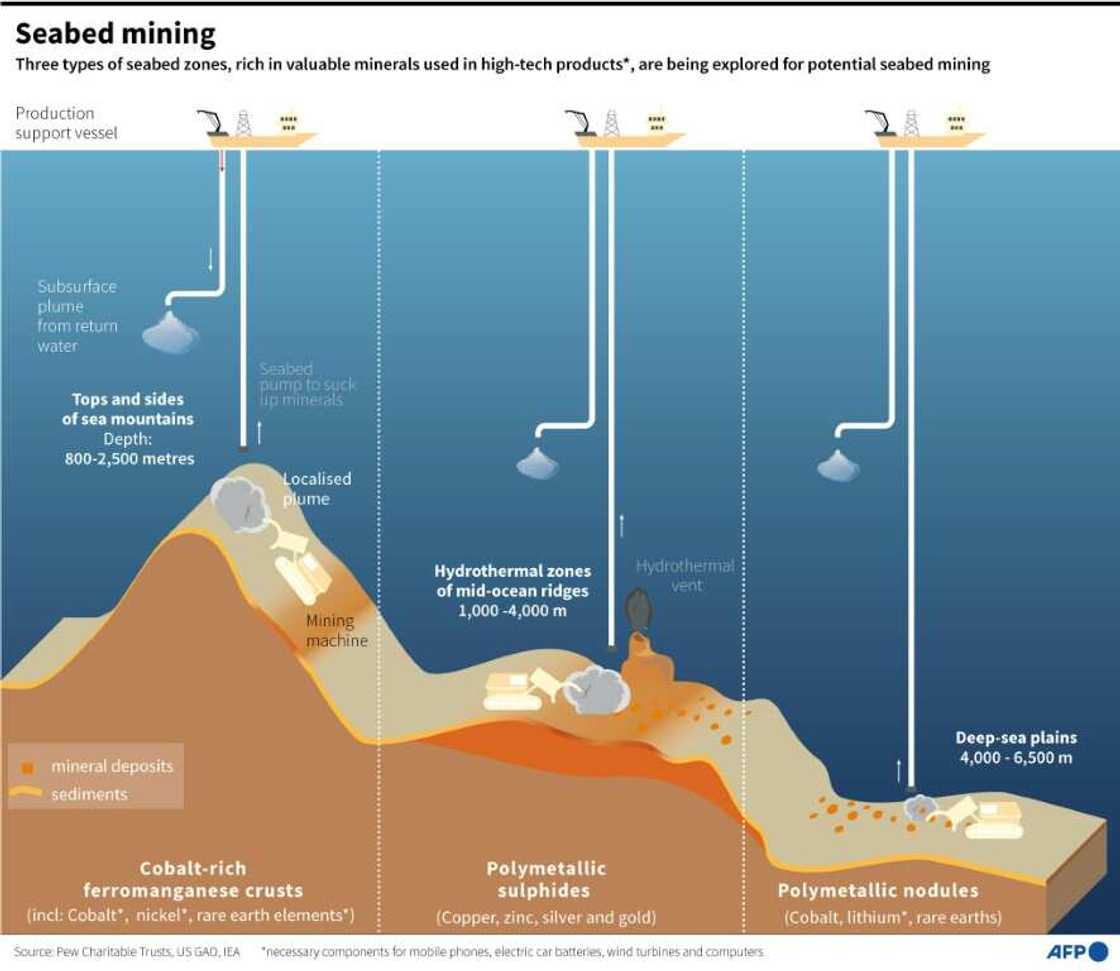Canada's TMC to seek license next year to mine Pacific deep sea

Source: AFP
Canada's The Mining Company will seek a license next year to start mining the depths of the Pacific Ocean, with production expected to follow in 2025, according to a statement.
It posted on its website late Tuesday that its subsidiary Nauru Ocean Resources intends to submit an application to the International Seabed Authority (ISA).
"Assuming a one-year review process, NORI expects to be in production in the fourth quarter of 2025," it added.
The International Seabed Authority (ISA)'s member nations agreed in July on a two-year roadmap for the adoption of deep sea mining regulations, despite conservationists' calls for a moratorium on mineral extraction they say would avert marine threats.
The little-known global body is tasked with regulating the vast ocean floor.
Some countries want to hurry up and begin retrieving rock-like "nodules" scattered across the seafloor, which contain minerals important to battery production such as nickel, cobalt and copper.
PAY ATTENTION: Share your outstanding story with our editors! Please reach us through info@corp.legit.ng!

Source: AFP
But NGOs and scientists say that trawling the deep seas could destroy habitats and species that may still be unknown or potentially vital to ecosystems.
The Mining Company and others are eyeing an abyssal plain stretching between Hawaii and Mexico, known as the Clarion-Clipperton Zone (CCZ), for the nodules.
Its chief executive Gerard Barron said the timeline it has laid out "gives us more time to strengthen our environmental dataset" while providing more time also for ISA work on mining code regulations and procedures.
It estimated it must also raise $60 million to $70 million to proceed with its application for a license, in addition to $20 million in cash it has on hand.
The company said it lifted 3,000 tonnes of nodules from the seafloor in trials last year, and aims to mine an estimated three million wet tonnes per year.
Source: AFP



